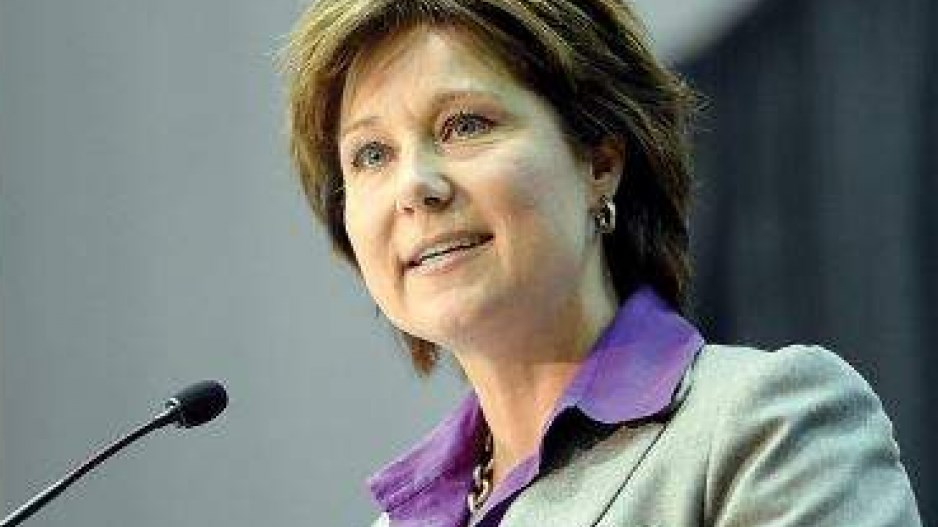Premier Christy Clark called the annual industry summit going on in Prince George "the must-attend event in British Columbia, in Canada, if you are involved in the resource industries."
She believed that so much that she put her name on it.
The Premier's Natural Resources Forum was organized and carried out for the previous 10 years by local MLA Pat Bell, now retired from politics. His replacement MLA Mike Morris stepped into the organizational role for this 11th edition and Clark provided her influence directly. During her keynote address on opening day January 22, she touched on several of the major sectors doing big business in this region.
It was the premier's first visit to Prince George since the May election.
She started, however, with the challenges ahead: a baby-boom bubble aging out of the workforce, a smaller tax-base as a result, huge infrastructure development projects, rising health-care costs and cross-Canada competition for workers and investors.
"Do we grow, or do we manage decline? Do we watch investments crumble because we can no longer afford to maintain them? I say we grow," she said. "The only way to do that is to say yes to economic growth."
One of the key priorities for northern B.C., she said, was further stimulation of the Port of Prince Rupert and the rail, roads and air infrastructure that complement the shipping activity through that facility.
Another key priority was streamlining and reinvigorating the forest industry. That would be done through the current review of the BC Timber Sales agency and the policy review that would follow the audit. Also, cutting industry red tape and boosting wood-sector foreign marketing were high on her agenda.
"If forestry is our founding industry, then mining is our comeback industry," she continued. The top of her list of indicators was the opening of the Mount Milligan mine northeast of Prince George and the expansion of the Gibraltar Mine in the Cariboo, plus all the other projects in the development stage.
She thanked industry, government officials and First Nations for their co-operation in getting Mount Milligan into production, and when she spoke of the need for deeper and more meaningful inclusion of First Nations interests in all natural resource aspirations, a spontaneous round of applause erupted from the pro-industry audience.
If one industry is most important, though, she pointed at liquified natural gas. With an estimated 39,000 construction jobs, 75,000 operations jobs and $1 trillion in buried assets, mostly in the northern half of the province, "it literally will transform the face of our province, our country, forever. We can turn that into a debt-free future for our children and grandchildren."
Further to that point, she insisted there would be balance found in using the assets of the land but not compromising on environmental factors.
"We have a responsibility to leave this province as beautiful and as clean as when we found it - or cleaner," she said. "There is no contradiction there. Other jurisdictions are looking to us to see how we [achieved the current balance] here."
When asked if that meant Enbridge had satisfied her conditions for building the proposed Northern Gateway Pipeline, she said "this doesn't boil down to a contest between the environment and economic creation...We are not there yet and there is no amount of money that can compensate [for cutting environmental safety corners]."
Clark on numerous occasions added references to national interests in what the resource sector is doing in B.C., especially northern B.C.
"Canada cannot succeed economically without northern B.C. - but B.C. has always needed northern B.C.," she said. "I believe this region's economic activities are going to drive the whole country. The people of Canada owe a debt to B.C.'s northerners for the work you do."
The Premier's Natural Resources Forum continues January 23 at the Civic Centre with a trade show, panel discussions, and keynote addresses.




